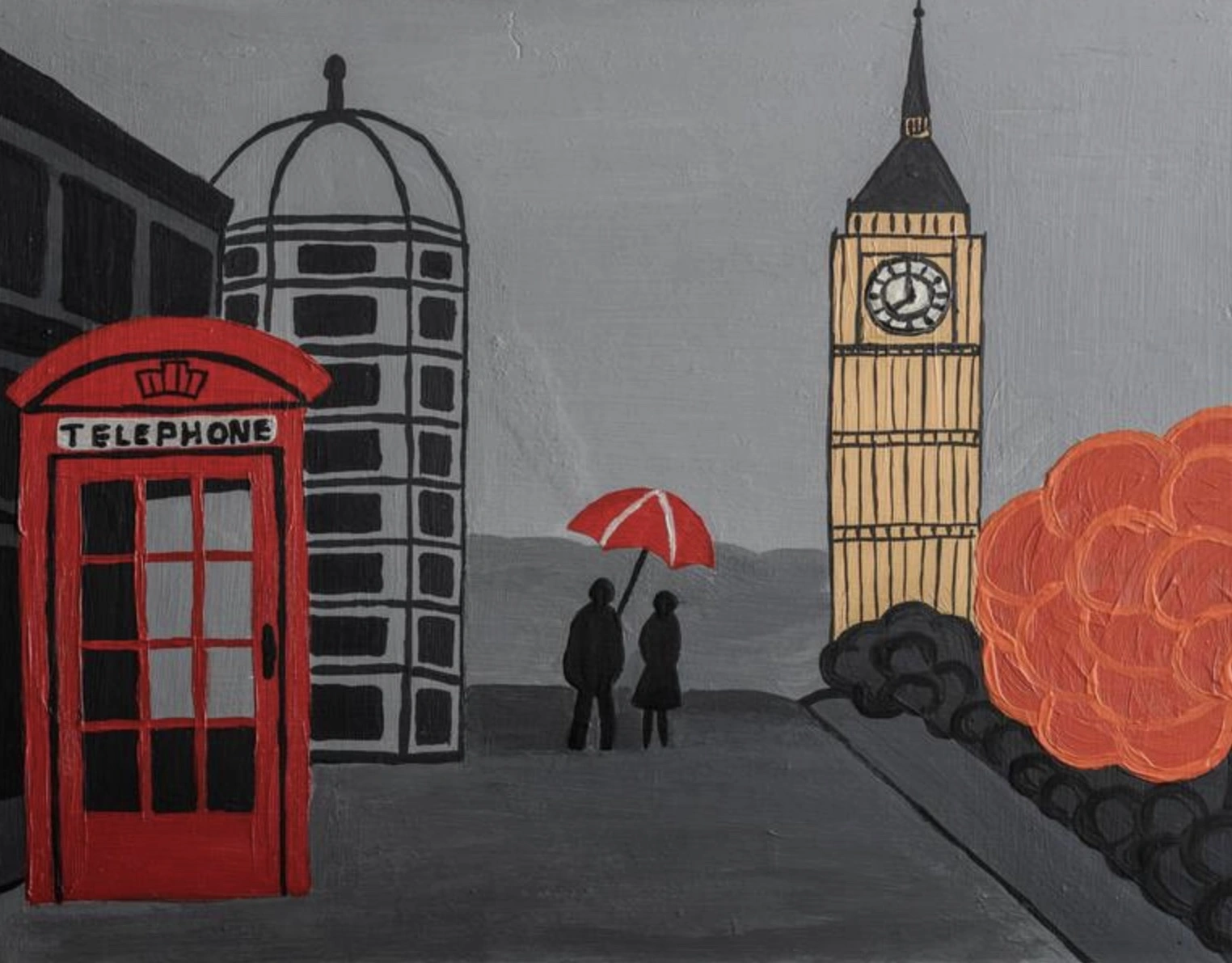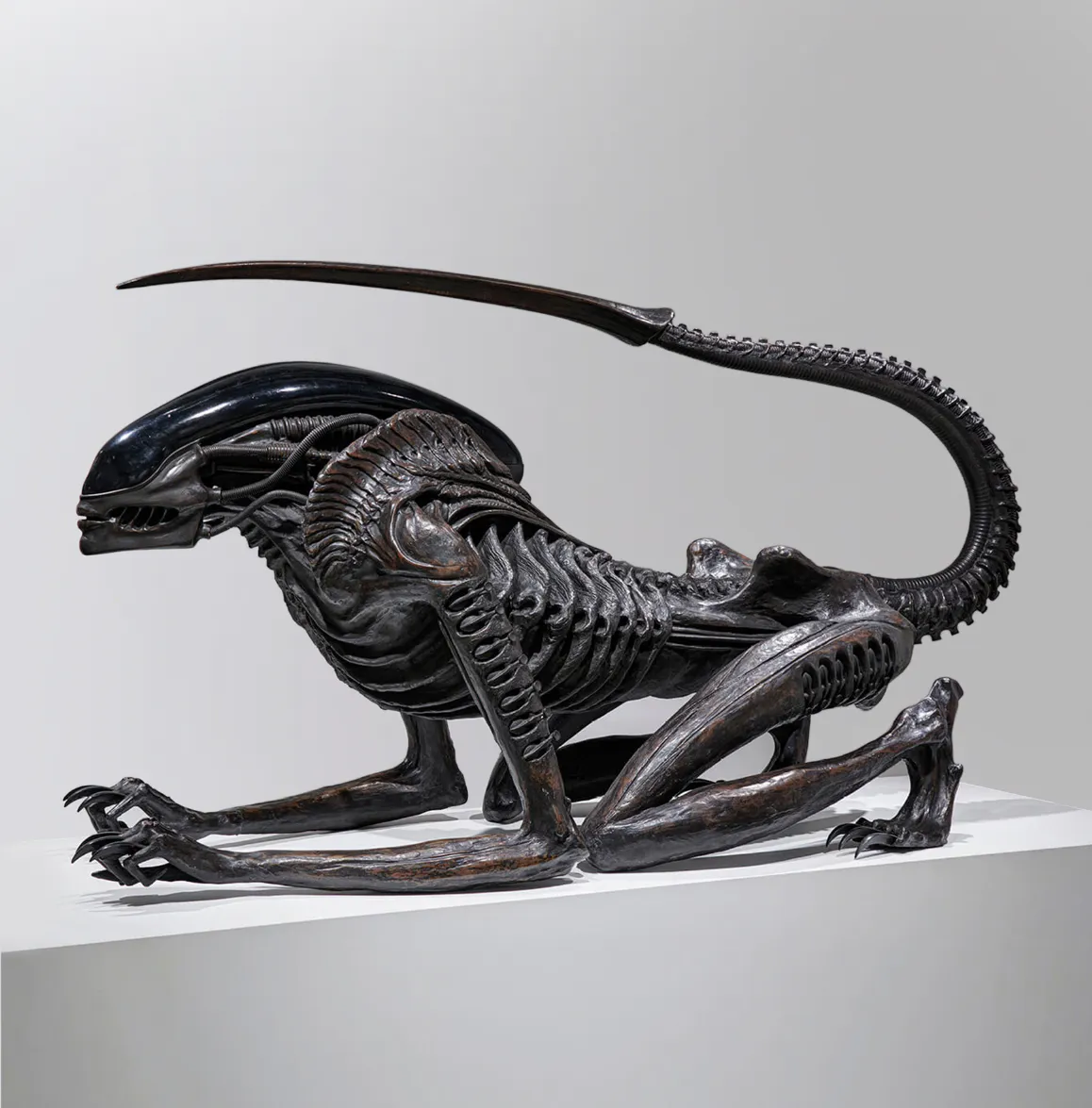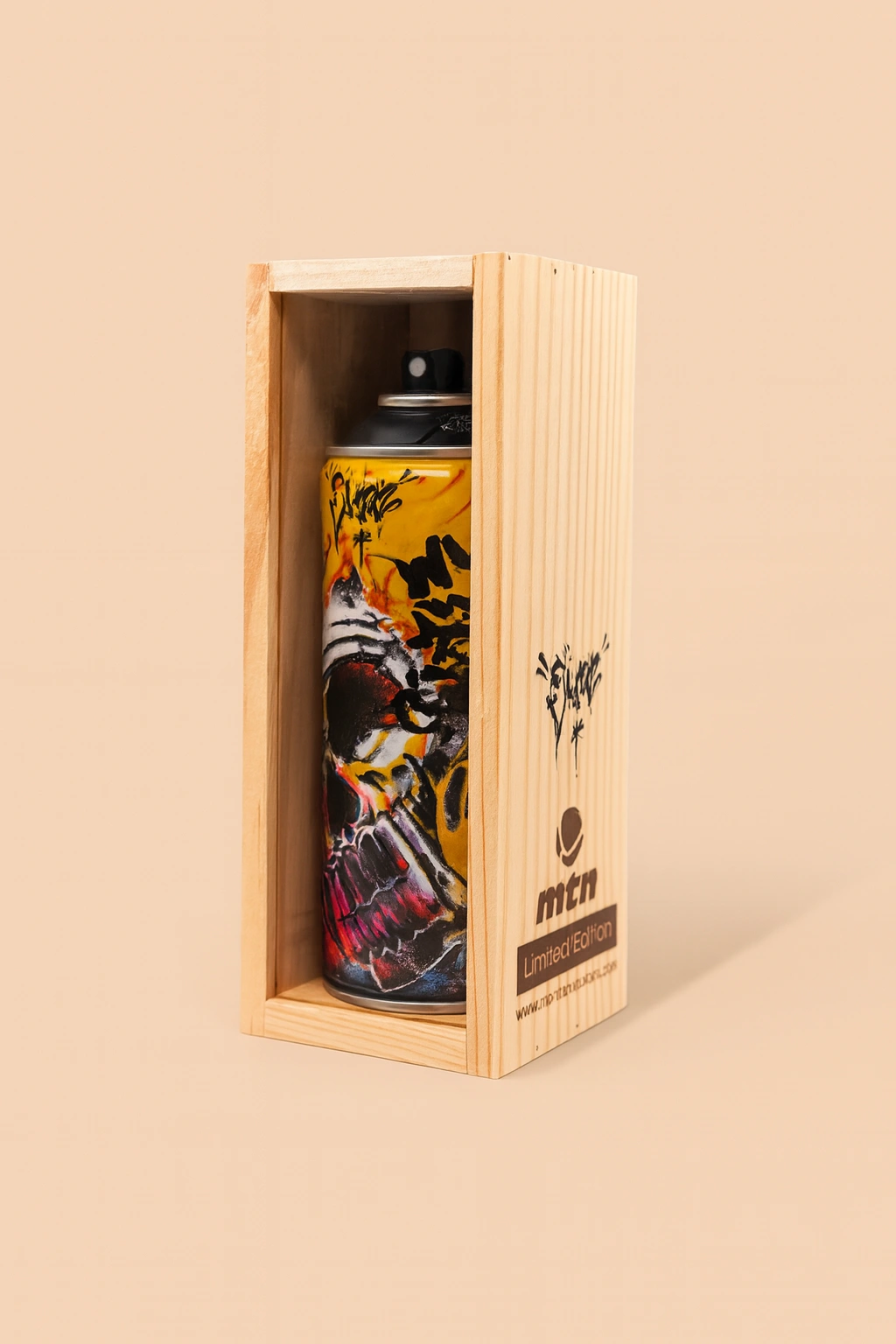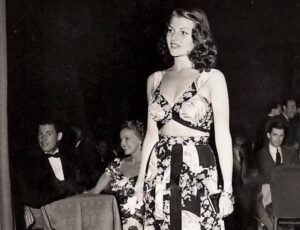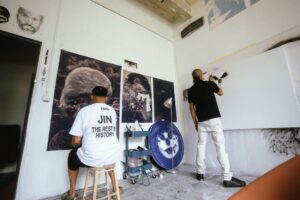In Along the Spree (2024), American painter Will Yackulic commits to oil not merely an image but a meditation—rendered on panel with such delicate vigor that its surface seems to breathe. The painting is, at first glance, a riverscape—calm, unhurried, geographically specific in its title and yet oddly unmoored in its atmosphere. It captures the storied Spree River as more than topography. Instead, it arrives as a threshold—a site of historical residue and present-day introspection, quietly anchored in Berlin but emotionally expansive. Painted in oil, a medium traditionally associated with permanence and solemnity, Yackulic turns the material into something murmurous and nearly transparent.
A Geography of Mood
The composition of Along the Spree defies the conventional picturesque. It does not court overt beauty or spectacle. There are no grand monuments nor any heroic narrative arc. What exists instead is a wide horizontal span—perhaps the soft curvature of a riverbank, perhaps a flattened shoreline—that invites the viewer into a contemplative flow. At the forefront: water rendered in tender, diffused blues and greens, their edges softened by an ambient haze. The Spree flows not in roaring motion but in a quiet stasis, barely distinguishable from the sky it reflects. There are traces of architectural presence in the distance—vague silhouettes, rectangular impressions suggestive of buildings, maybe a dock or a warehouse—but they retreat from definition, their outlines swallowed by fog or intention.
Yackulic resists the temptation to delineate. This is not Berlin as defined by its concrete, steel, or spires. Instead, this is Berlin as weather—mutable, shifting, ephemeral. The river becomes the city’s unconscious: a vessel of memory, of forgotten cargo and submerged emotion. Its banks seem deserted yet watched, as if an unseen figure might be just off-frame, inhaling the moment without interfering in it.
The Language of Light
Light in Along the Spree is not merely illumination—it is storytelling. It does not fall cleanly from above but moves laterally, gently washing over the scene in a gradient that suggests early morning or late afternoon. The oil medium serves Yackulic’s vision well here, affording the surface a kind of skin-like depth that allows the luminosity to glow from within rather than merely upon. The palette is muted but not monochrome—eggshell whites, river-glass green, slate gray, and the faintest notes of rust or ochre bleed into one another, like bruises fading across the sky.
There is restraint in Yackulic’s chromatic decisions, but not sterility. The decision to paint with oil on panel rather than canvas enhances this effect. The rigidity of the panel provides a crisp edge to even the most diffuse gesture, creating a dynamic tension between solidity and vapor. It is as though the river could spill off the surface but is held back by the precision of its support.
Absence as Presence
One of the defining characteristics of Along the Spree is its refusal to populate the frame. No humans appear in the work, and yet it is steeped in humanity. The absence of figures does not imply lifelessness but rather an emotional distillation—an echo of presence that hovers just beneath the visible. You can almost hear the city beyond the painting’s edges: the groan of trams, the sigh of bicycles on cobblestone, the low murmur of café chatter from Kreuzberg terraces, even the occasional ripple of techno leaking from a basement club.
This absence may also be a nod to the temporal elasticity of the river. The Spree has seen war, division, reunification. It has absorbed all of Berlin’s past and carries it, silently, into the present. Yackulic does not gesture overtly to this history but rather weaves it into the affective tone of the piece. The stillness of the river becomes archival—a reservoir of moments both collective and personal.
Structural Poetics
What marks Yackulic’s work here is an architecture of subtle geometries. There’s a tension between the fluid natural forms and the ghostly outlines of human structures—a long warehouse wall barely perceptible beneath a silvery brushstroke, or the sharp vertical of a pole that seems to point nowhere in particular. His linework walks the line between description and suggestion. The viewer begins to see things—phantom bridges, errant windows, loops of wire—that may not have been painted at all but rather conjured by the painting’s internal logic.
The composition itself could be read like a sentence—a long, slow clause that resists a period. If there is punctuation, it is the occasional vertical: a masted boat docked invisibly, or perhaps a pier reaching toward the current. There’s a grace in Yackulic’s syntax, a rhythm in the way he places empty space as the dominant subject.
Material and Meaning
Oil on panel is a meaningful choice. Whereas canvas absorbs and diffuses paint, panel offers a surface that resists, holding each layer aloft. The smoothness of the support allows for precision, but Yackulic applies that precision to the ambiguous, paradoxically painting uncertainty with confidence. There is no impasto, no bravura brushwork. This is painting as whisper, as trace.
It is here that the work draws a connection to the philosophical. The Spree becomes not only a literal waterway but a figure for the flow of thought itself. The panel is a tablet, and the oils are inscriptions—some legible, some fading, all demanding of slowness. There is a reverence in the way Yackulic applies his paint, as though each mark were an invocation of memory or an attempt to notate time.
A Painting of the Present
Although Along the Spree resists specificity, it is deeply contemporary. Its atmosphere is one of post-pandemic solitude, of climate-anxious reverence for natural rhythms, of geopolitical contemplation. Berlin today is a city of contradictions—eclectic, intense, memorialized, and in flux. Yackulic’s image embraces all of that without ever having to declare it. The painting speaks to now without anchoring itself to headlines. Instead, it offers a place to pause—to feel what modernity usually compels us to ignore.
Yackulic has long been known for works that explore systems, perception, and visual poetics, often deploying mixed media and formal abstraction. But in Along the Spree, he finds a figurative register that does not sacrifice his intellectual rigor. It is painterly, yes—but it is also philosophical, spatial, and musical. This is not a work that insists—it invites.
Flow
Along the Spree is less a scene than a sensation. It is Berlin imagined through memory’s prism—part dream, part document. Will Yackulic’s handling of oil here is subtle yet resonant, yielding a work that lives not only in the eye but in the body. It slows the pulse. It quiets the room. And it leaves one with the unmistakable feeling of having been somewhere—of having been less withdrawn away, even briefly, along the edges of a river that remembers everything, and forgives most of it.
No comments yet.


